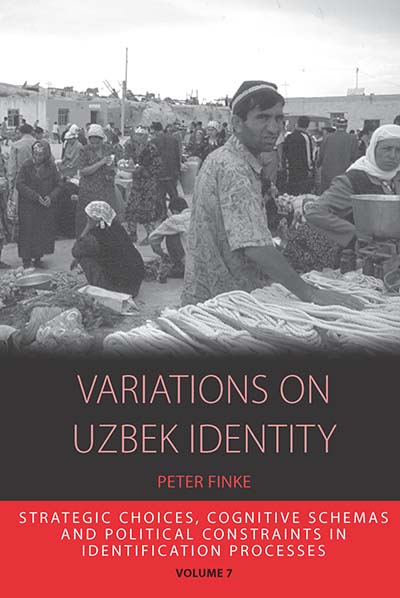“Finke contributes a careful and detailed analysis of the Uzbek identity to the studies of ethnic identity formation and nationbuilding projects in Central Asia. Hence, this book is of particular relevance for Central Asian area studies, while also engaging with theoretical debates in Anthropology, Political Science and Sociology.” · Social Anthropology
“An excellent study of Uzbek ethnicity and identity finds four quite different concepts of Uzbekness and systems of group membership in four locations around Uzbekistan, radically calling into question our presumptions about ethnicity, identity, and social boundaries.” · Anthropology Review Database
“…a meticulous study of ethnic groups faring in different regions of contemporary Uzbekistan. Nowadays, when there are so many unjustifiable restrictions… to study Uzbek society, this book is a lucky example of a scholar who managed, in spite of all restrictions, to conduct and complete substantial fieldwork research… It has been decades since Uzbekistan has seen such a breadth of ethnographic observations.” · Alisher Ilkhamov, Independent Scholar
Throughout its history the concept of “Uzbekness,” or more generally of a Turkic-speaking sedentary population, has continuously attracted members of other groups to join, as being Uzbek promises opportunities to enlarge ones social network. Accession is comparatively easy, as Uzbekness is grounded in a cultural model of territoriality, rather than genealogy, as the basis for social attachments. It acknowledges regional variation and the possibility of membership by voluntary decision. Therefore, the boundaries of being Uzbek vary almost by definition, incorporating elements of local languages, cultural patterns and social organization. This book combines an historical analysis with thorough ethnographic field research, looking at differences in the conceptualization of group boundaries and the social practices they entail. It does so by analysing decision-making processes by Uzbeks on the individual as well as cognitive level and the political configurations that surround them.
Peter Finke is Professor for Social Anthropology at the University of Zurich and Co-director of the Centre for Anthropological Studies on Central Asia (CASCA). Between 2000 and 2006 he was a Research Fellow and Head of a Research Group at the Max Planck Institute for Social Anthropology, Halle. He also served as a Visiting Professor at the University of New Hampshire (2002/2003) and the Middle Eastern Technical University, Ankara (2004 to 2006). Since the early 1990s he has conducted field research in Mongolia, Kazakstan, and Uzbekistan, and has published extensively on economic transformation, social change and processes of identity formation.
LC: DK885.5.U9 F56 2014
BL: YC.2014.a.7127
BISAC: SOC002010 SOCIAL SCIENCE/Anthropology/Cultural & Social; HIS050000 HISTORY/Asia/Central Asia
BIC: JHMC Social & cultural anthropology, ethnography; HBJF Asian history


